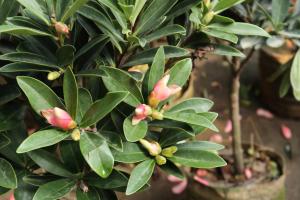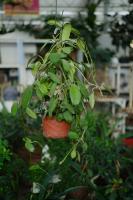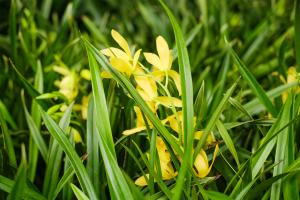Can Brown Plastic Plant Pots Be Recycled?
Brown plastic plant pots are commonly used for gardening and landscaping purposes, but what happens to them after plants have outgrown them or they have become damaged?
The Recycling Symbol
The first step to determining if brown plastic plant pots can be recycled is to look for the recycling symbol. This symbol is usually located on the bottom of the pot and indicates the type of plastic it is made from.
The Type of Plastic
There are several different types of plastic, and each one is recycled differently. The three most common types of plastic used for plant pots are Polyethylene (PE), Polypropylene (PP), and Polystyrene (PS).
PE is the most widely used plastic and is commonly found in items such as milk jugs and grocery bags. PP is commonly used for food packaging and products that require high heat tolerance. PS is often used for disposable plates and cups.
Recycling PE and PP Pots
Polyethylene (PE) and Polypropylene (PP) are both commonly recycled plastics. In fact, many recycling facilities accept these types of plastics. Brown plastic pots made from PE or PP can usually be recycled along with other household plastics, such as milk jugs and soda bottles.
Recycling Polystyrene Pots
Polystyrene (PS) is a more difficult plastic to recycle, and it is not accepted by all recycling facilities. Brown plastic pots made from PS should be checked with your local recycling facility to determine if they can be recycled.
While PS is not always accepted by recycling facilities, there are companies that specialize in recycling this plastic. Check with your local waste management facility or search online for companies that recycle PS in your area.
Cleaning and Preparing Pots for Recycling
Before recycling brown plastic plant pots, it is important to clean them and remove any soil or plant debris. Soaking them in a solution of water and dish soap can help remove any stubborn grime.
Additionally, it is important to remove any labels or stickers on the pot. These labels can interfere with the recycling process and cause the pot to be rejected.
The Importance of Recycling
Recycling brown plastic plant pots is important for several reasons. Firstly, recycling reduces the amount of plastic waste that ends up in landfills, which helps to protect the environment. Additionally, recycled plastic can be used to make new products, such as garden tools, furniture, and even new plant pots.
Recycling also conserves natural resources, as recycled plastics use less energy to produce than new plastic. Additionally, recycling creates jobs and helps support the local economy.
Conclusion
Recycling brown plastic plant pots is possible, but it is important to determine the type of plastic and check with your local recycling facility to ensure they can be recycled. Cleaning and preparing the pots for recycling is also important to ensure they can be properly processed.
By recycling plastic plant pots, we can help reduce waste, conserve resources, and support the growth of a circular economy.

 how many times do yo...
how many times do yo... how many planted tre...
how many planted tre... how many pine trees ...
how many pine trees ... how many pecan trees...
how many pecan trees... how many plants comp...
how many plants comp... how many plants can ...
how many plants can ... how many plants and ...
how many plants and ... how many pepper plan...
how many pepper plan...
































